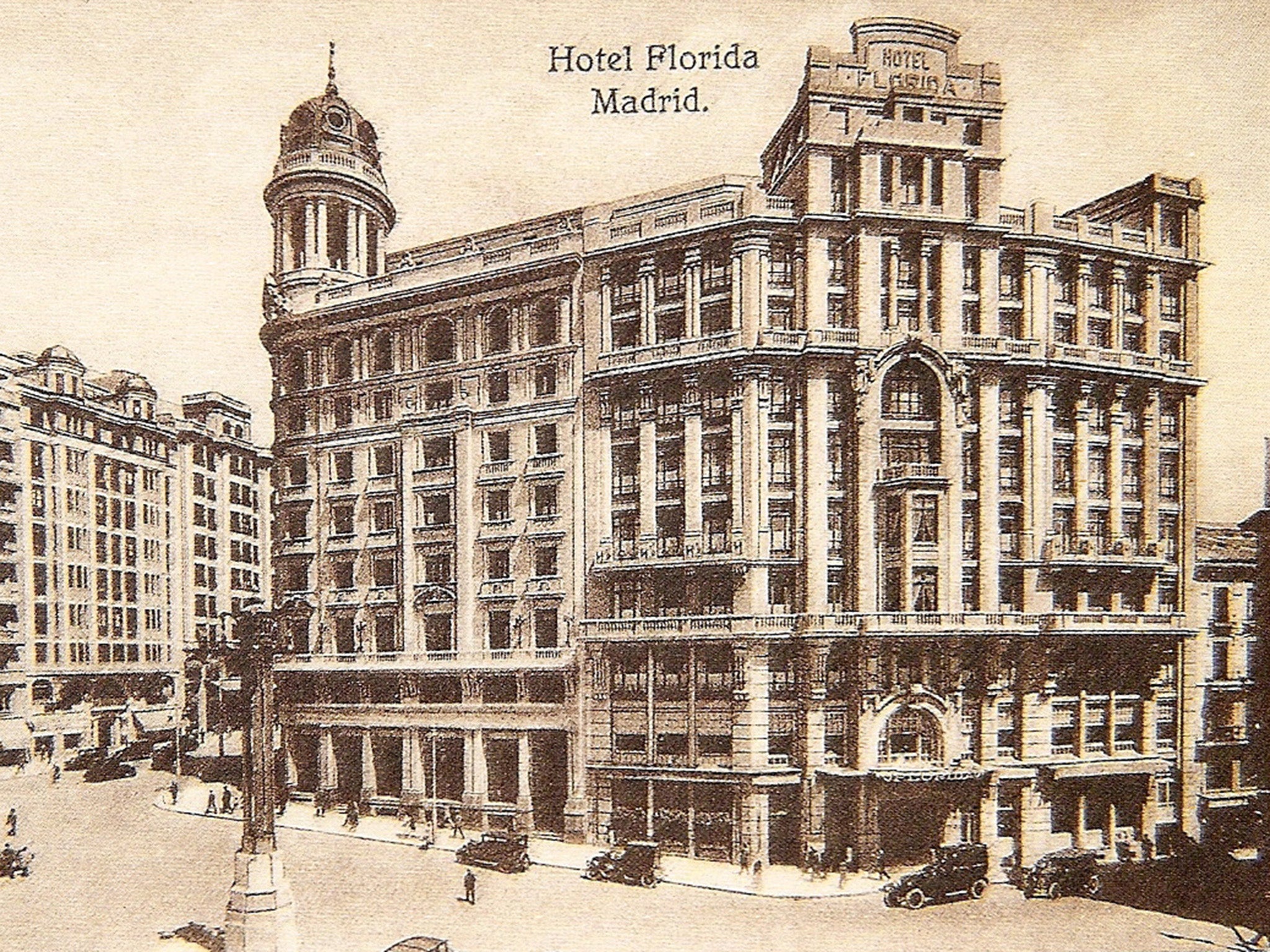Paperback reviews: Hotel Florida, The Helios Disaster, Chop Chop, The Man Who Couldn’t Stop, A King in Hiding
Hotel Florida centres on the hotel of that name in the middle of Madrid, where writers, journalists, and photographers congregated during the conflict

Hotel Florida by Amanda Vaill
(Bloomsbury £9.99)
Subtitled “Love, Death and Truth in the Spanish Civil War”, Hotel Florida centres on the hotel of that name in the middle of Madrid, where writers, journalists, and photographers congregated during the conflict. Vaill follows the stories of six figures in particular, who were also three couples in love: the Austrian journalist Ilsa Kulcsar and the Spanish press censor and, later, writer, Arturo Barea; the photographers Robert Capa and Gerda Taro; the American writers Martha Gellhorn and Ernest Hemingway. It’s a marvellous piece of historical writing, informed by the letters, diaries, fiction, photographs, and films of the time (much of it produced by Vaill’s six protagonists), which captures the confusion, the desperation, and the heroism of the time; this is history you can immerse yourself in, and knowing the war’s wretched outcome lends a sense of tragic irony to events. Centred in, and always returning to Madrid, the story also follows the characters in their travels all over the world between 1936 and 1939, from Paris to Vienna to Key West to New York to China. The supporting characters who weave in and out of the three couples’ lives form a fascinating roll call: George Orwell, Louis Aragon, André Malraux, Kim Philby, Langston Hughes, Eleanor Roosevelt, Dorothy Parker, Orson Welles, and John Dos Passos (with whom Hemingway fell out over the politics of the war). Vaill writes beautifully, and clearly feels a great deal of affection and empathy for all her characters, with the partial exception of Hemingway; she admires him as a writer, not so much as a person, and it’s entertaining to follow her digs at his character flaws as the story unfolds. The book also contains a 16-page photo-journal insert, many of the images taken by Robert Capa and Gerda Taro themselves.
*****
The Helios Disaster by Linda Bostrom Knausgard
World editions £9.99
“I am born of a father. I split his head.” So begins this odd novel, translated from the Swedish by Rachel Wilson-Broyles. A 12-year-old girl, Anna, emerges abruptly into the world, born like Athena from her dad’s head. Naked, she wanders down the street until she’s taken to social services by a kindly neighbour; she’s placed with a foster family, headed up by a pastor and a well-meaning mum, with two sons, all of whom seem to be living lives of quiet desperation. They treat her well, but she is withdrawn, hardly speaks, her head filled with dark, destructive thoughts, and wanting only one thing: to be reunited with her father who has acute schizophrenia and is in a psychiatric institute. The style is limpid and lyrical, but the rest of the novel does not quite live up to its intriguing beginning: it seems to be a parable about depression, and though short, is fatiguing at times to read because the language is so relentlessly negative. It’s not a barrel of laughs, but if you like your fiction to be strange, this should appeal.
***
Chop Chop by Simon Wroe
Penguin £8.99
“Monocle” is a 23-year-old sous-chef in a London gastropub (he doesn’t wear a monocle, but is so nicknamed by his fellow chefs, Ramilov and Racist Dave, because he has a degree in English Literature). The head chef, Bob, is a sadistic bully who locks people in the walk-in fridge as a punishment, and pours scalding liquids over his workers’ hands to chivvy them up. It’s an enjoyable kitchen romp, drawing on Wroe’s own experience as a chef. But the plot – which involves a sinister gangster called the Fat Man, and a more serious theme about the childhood death of Monocle’s brother, plus a love interest based on his timorous infatuation with the beautiful taciturn chef, Harmony – does not quite convince.
***
The Man Who Couldn’t Stop by David Adam
Picador £8.99
Dr David Adam is a writer and editor at Nature; he also suffers from Obsessive Compulsive Disorder, and this book offers an insight into that condition. The common view that OCD is all about washing your hands over and again is not accurate. As Adam explains, OCD is really about having intrusive thoughts – “What if I hit that person with a hammer? What if I jumped off this ship into the sea?” – and developing rituals to keep them at bay. But the rituals don’t work; they reinforce the thoughts, and that is the cycle that OCD sufferers must break. In Adam’s own case, the intrusive thought is “What if I’ve got Aids?”. He describes the rituals he developed to help him cope and his battle against them, with self-knowledge and humour.
****
A King in Hiding by Fahim Mohammad (With Sophie le Callenec and Xavier Parmentier; translated by Barbara Mellor)
Icon £8.99
Aged eight, chess prodigy Fahim Mohammad had to flee Bangladesh with his father as he was the target of a planned kidnap. They sought asylum in France, which was refused; so they lived in Paris as illegal immigrants while appealing against the decision. By a stroke of luck, Fahim was living practically on the doorstep of the chess club run by Xavier Parmentier, the national chess coach. The book tells how Fahim rose to become France’s Under-12 champion – just in time to save him from deportation. It’s a heartwarming story, although it does make you wonder what would have become of Fahim if he had not been so good at chess. Apropos of which, I would have preferred more detailed accounts of some of the chess matches.
***
Join our commenting forum
Join thought-provoking conversations, follow other Independent readers and see their replies
Comments